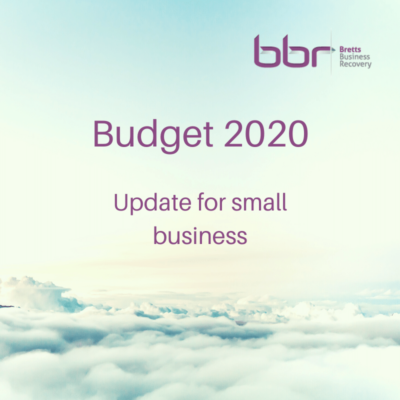Budget 2020 – key points for SMEs

Budget 2020 confirmed a number of measures affecting small business including:
The date from which HMRC will regain its secondary preferential creditor status for insolvencies has been extended to 1 December 2020 (as opposed to 6 April 2020). This means that in an administration or liquidation, HMRC will move up the rankings of who gets paid out first, thus being prioritised ahead of floating charge and unsecured creditors.
The Budget made no changes to plans to give HMRC the power to make directors and others personally liable for corporate tax debts in certain circumstances. This is expected to be included in the next Finance Bill.
The Budget provides support for businesses including:
- a scaled-up Time to Pay scheme – allowing businesses and the self-employed to defer tax payments.
- statutory sick pay refunds for SMEs – the government will refund the cost of statutory sick pay for up to 14 days to small- and medium-sized businesses. This will apply to businesses with fewer than 250 employees.
- a new Coronavirus Business Interruption Loan Scheme – the government will guarantee bank loans to small businesses on amounts of up to £1.2m, supported by an 80% Government guarantee.
- a Business Rates holiday for businesses (with a rateable value below £51,000) in the retail, leisure, and hospitality sectors. Valid to end 2020.
- Any business eligible for SME Rates Relief will be eligible for a £3,000 grant.
Entrepreneurs’ Relief has been scaled back but not scrapped. The lifetime limit has been reduced from £10m to £1m.
IR35 reform will be delayed until 2021. See our latest advice relating to IR35 – Still time to wind down.
If you’re concerned about any of the above issues, contact us for advice.